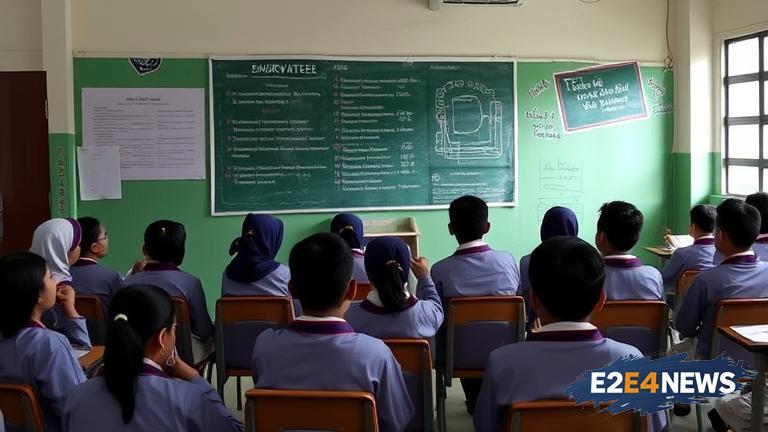The Indonesian education system has come under scrutiny following the implementation of the Peoples School policy, which has led to the resignation of hundreds of teachers. The JPPI, a prominent education organization, has criticized the policy, stating that it has failed to provide adequate education standards and has instead caused widespread disruption to the education sector. The policy, aimed at providing free education to underprivileged students, has been plagued by issues such as inadequate funding, poor infrastructure, and insufficient teacher training. As a result, many teachers have chosen to resign, citing unbearable working conditions and a lack of support from the government. The JPPI has called for an immediate overhaul of the policy, citing concerns over the long-term impact on the education system and the future of Indonesian students. The organization has also expressed concerns over the lack of transparency and accountability within the education ministry, which has failed to address the issues raised by teachers and education stakeholders. The Peoples School policy was introduced with the aim of increasing access to education for disadvantaged students, but it has ultimately failed to deliver on its promises. The policy has been criticized for its lack of clear objectives, inadequate funding, and poor implementation. The JPPI has urged the government to conduct a thorough review of the policy and to engage with education stakeholders to develop a more effective and sustainable solution. The organization has also called for increased investment in teacher training and education infrastructure, as well as improved support for teachers and students. The Indonesian government has faced criticism for its handling of the education system, with many citing a lack of commitment to improving education standards. The JPPI has emphasized the need for a comprehensive and inclusive approach to education reform, one that prioritizes the needs of students, teachers, and communities. The organization has also highlighted the importance of addressing the root causes of education inequality, including poverty, lack of access to resources, and social inequality. The Peoples School policy has been seen as a failed experiment, one that has ultimately exacerbated existing education inequalities. The JPPI has called for a new approach to education reform, one that is grounded in evidence-based research and prioritizes the needs of all stakeholders. The organization has emphasized the need for increased transparency and accountability within the education ministry, as well as a commitment to addressing the systemic issues that have plagued the education system for decades. The Indonesian government has faced mounting pressure to reform the education system, with many calling for a more comprehensive and inclusive approach to education. The JPPI has urged the government to prioritize education reform, citing the long-term benefits of a well-educated and skilled workforce. The organization has also emphasized the need for increased investment in education, including funding for teacher training, education infrastructure, and student support services. The Peoples School policy has been seen as a missed opportunity, one that has failed to deliver on its promises and has instead caused widespread disruption to the education sector. The JPPI has called for a new approach to education reform, one that prioritizes the needs of students, teachers, and communities, and is grounded in evidence-based research and a commitment to improving education standards.





